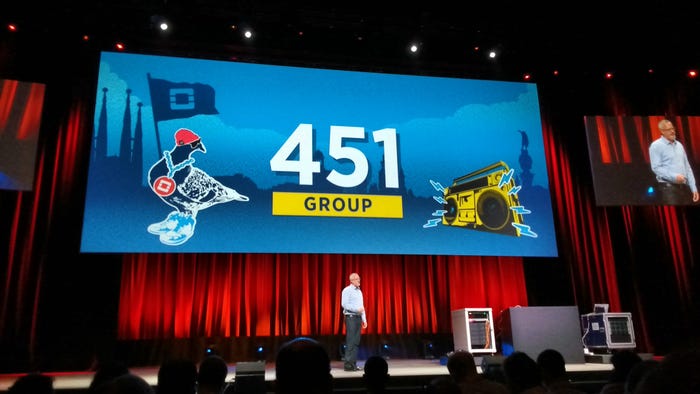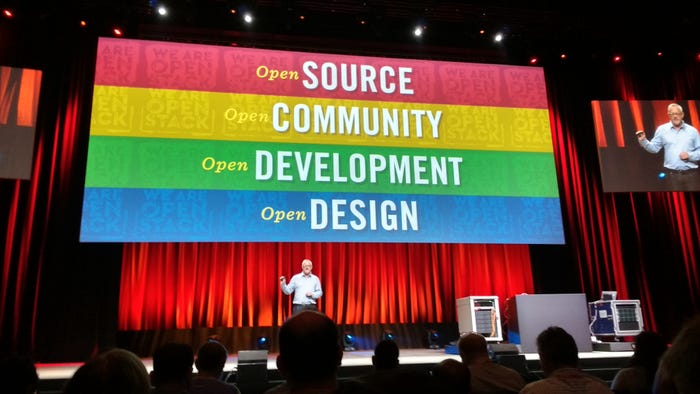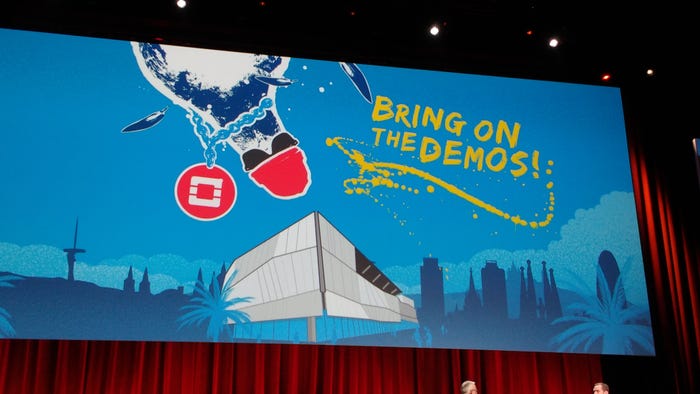Openstack gets desperate and pulls out the dad jokes
This week saw the launch of Openstack Summit with a series of cringe-worthy jokes and a needy cry for attention and validation in the industry.
October 25, 2016

This week saw the launch of Openstack Summit with a series of cringe-worthy jokes and a needy cry for attention and validation in the industry.
Mark Collier, the OpenStack Foundation’s COO did his best to bring an element of humour to the opening presentation, and to be fair, occasionally got a giggle from the audience, but it all seemed a tad forced. Openstack has been a technology which has struggled to find its place in the industry and compete with the fast growing tech giants, now it would appear it is using quirky and chummy marketing ploys to find its voice. During the opening keynote, Collier said a lot without really saying much.
The Openstack Foundation was launched in 2010 amid much fanfare and has since capitalized on the industry’s thirst for opensource. This is a trend which has not turned into a disappearing fad, but has in fact penetrated into mainstream business. More often than not, there is a race for companies such as Google or Microsoft to opensource new APIs and engage the community, and while this could be seen as a façade to attract new customers, in reality the concept of vendor lock-in is slowly starting to die.
Sounds great, right? Yeah… But the Openstack Foundation has lost its unique position in the industry. No longer is it the only option should a customer be looking for a truly open proposition. The big problem here is Openstack is complicated to implement; in a lot of cases it takes a small army of specialists to implement. The long-term benefits are clear, but with such complications to implement in the first place, adoption rates of Openstack has been relatively low considering the hype.
For most, Openstack is seen as a tool for the larger organizations, though the team are claiming this is no longer the case. Using findings conducted by 451 Research (and funnily enough commissioned by the Openstack Foundation) the user base can be seen to diversify, though despite the shout out, the data did show the majority of users are still within the enterprise scale organizations.
To combat such a challenge, Collier and co. have been leaning on clever marketing and PR to create a brand which is friendly, laid back and a bit hippy. It relies on the idea of a community to design, support and grow deployments, using Openstack users from around the world. It’s very relatable and appealing to certain demographics. It using ‘cool’ imagery and cartoons (see pictures at bottom of article) as part of the brand, and creating the persona of that fun guy down the pub; you can’t help but have a giggle with him.
“We don’t build software in a small room in Seattle or Silicon Valley, we have friends all over the world,” boasted Collier. The team are trying to appeal to the industry by making the corporations the bad guys and reaching out to the individuals themselves through (attempted) humour and (transparent) friendliness.
One claim made by Collier is that the big bad corporations create a proposition, ‘throw it over the wall’ and then forget about it. It may well be opensource, but there is little support. The Openstack Foundation has a global community of ‘friends’ who can help. It’s an Open Community which supports itself. There may be the odd example, and the big corporations are not entirely blameless, but Collier is WRONG. Microsoft, Google and the rest would never have any customers if this was the case. It’s an attempted low blow and a dirty move.
All in all, very little was said to the audience by Collier. Openstack has lost its unique open position in the industry and needs to create a new one. One release was announced, but very little insight was given to the future of the organization. Humour and ‘interesting’ claims covered up an organization which is still searching for its place in the industry.
Collier put forward a lot of claims the platform is growing and expanding its user base, while this may be the case, Openstack is being left behind as its competitors are grow at a faster rate. The whole keynote seemed a bit transparent, a bit over-the-top, a bit cringe-worthy, a bit cosmetic and a bit desperate.



About the Author
You May Also Like


.png?width=300&auto=webp&quality=80&disable=upscale)







.png?width=300&auto=webp&quality=80&disable=upscale)


_1.jpg?width=300&auto=webp&quality=80&disable=upscale)